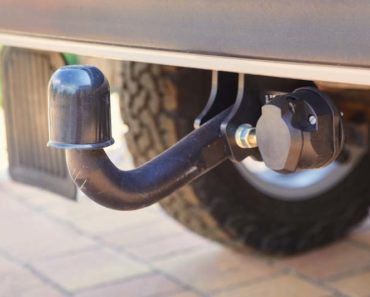Preparedness has become front-page news. Weather-related disasters and man-made factors have made many of us more aware of the need to prepare for unforeseen circumstances.
Once we have planned for the “big three” – water, food, and shelter – our attention usually turns to power. For many, the question becomes which fuel is better: propane or gasoline?
Home-sized generators come in various sizes and configurations, from small portable inverter generators to larger permanently mounted whole-house models.
There are several ways to fuel an emergency generator. The most common means are gasoline, propane, or natural gas. Gasoline and propane remain the most common fuel sources because of the convenience and ease with which these fuels can be sourced and stored.
In some cases, diesel fuel, natural gas, or even alcohol may be an option. But from a commercially available standpoint, gasoline generators and propane generators remain the most economically available choices for powering your home during emergencies.
However, each of these fuels has its own set of advantages and disadvantages that must be considered when making your decision.
What are the Differences Between A Propane Generator and a Gas Generator?
Typically, the differences between propane and gasoline-powered generators are somewhat subtle. Looking at two comparable generators, one of which uses propane and one which uses gasoline, show very few visible differences.
Mechanically, the two types of generators have the same equipment: a motor to turn the generator which produces the electrical output.
Gas Versus Propane – The Obvious Difference
The most obvious difference between a propane or gas generator is the fuel system. Gasoline generators must have an onboard gas tank and fuel lines to operate. On most home-style generators, the fuel tank sits on top of the generator to make refueling as easy as possible.
Propane generators usually have a connection point where the hose from a portable propane tank can be attached.
The attachment point typically uses a quick disconnect type of fitting that makes changing propane bottles quicker and easier. The generator may have a built-in regulator to deliver the precise gas pressure to the carburation system of the generator.
Generator Power
In general, propane delivers less power to turn the generator than gasoline. Propane has fewer BTUs per unit than gasoline, which means the motor burning the propane delivers less power to the output shaft.
In use, this is rarely a factor unless your generator is designed to operate on both gasoline and propane. In the case of dual fuel power generators, the generator usually delivers less electrical power when running on propane.
Economy and Ecology
From an operating economics standpoint, propane is less economical than gasoline. Most gasoline-powered generators deliver more electrical power for a given fuel volume than propane-powered generators. Sometimes, this can make a propane generator more expensive to run over time.
On the other hand, propane is a cleaner burning fuel than gasoline and produces fewer by-products when it burns. From an ecological standpoint, propane generators can be considered a better alternative than gasoline generators.
Cost Effectiveness
Overall, a propane generator will cost more upfront than a gas generator. In addition, propane generators can be more expensive to repair. Over the long run, a propane generator tends to be less efficient than a gas generator. It is often cheaper to purchase propane in large quantities than gasoline, which can make a propane generator more cost-effective under certain circumstances.
Gas Generators – Advantages and Disadvantages
Deciding on which fuel is most appropriate for your situation can be confusing and somewhat overwhelming. Gas and Propane have their own advantages and disadvantages to consider. In the case of a gas generator, these are factors that should weigh into your fuel decision:
Advantage – Portability
Gasoline generators tend to be more portable, especially the smaller varieties. Since most gasoline generators have an integral gas tank, you don’t have to lug a separate fuel bottle and hoses with the generator. On small generators, this can be a distance advantage, especially if you intend to use the gasoline generator away from home for camping or other outdoor activities.
Advantage – Maintenance and Care
On the whole, gasoline generators are much less trouble to maintain. The small gasoline engines that power these portable generators are easy to operate, require less maintenance than propane generators, and cost less over the long haul to keep running.
Advantage – Power and Output
Gasoline has several advantages over propane when operating in extreme climates. Gasoline is more resilient in extreme cold than propane. At extreme temperatures, propane may deliver less power and develop problems maintaining enough pressure to operate the engine.
Advantage – Fuel Availability
Gasoline is, on the whole, much easier to source and obtain than propane. Most gasoline generators will use standard or regular pump gas with no hesitation. Propane is usually only available from a limited number of vendors that may be hard to locate in some areas.
In emergency situations, gasoline may be much easier to source than refilling a propane tank. Emergency responders typically rely on gasoline-powered equipment, and gasoline is often quickly available in affected areas after a disaster. Propane deliveries may be interrupted due to blocked roads or a lack of electricity to drive the pumps required to fill propane bottles.
Disadvantage – Storage
Gasoline is difficult and dangerous to store in large quantities. In addition, gasoline deteriorates over time and becomes unusable. In some cases, using old gasoline in your generator can damage the engine to the point of inoperability.
Some products can extend the storage life of gasoline, but even with these products, gasoline has a much shorter shelf life than propane. This makes storing enough gasoline for an emergency situation difficult, given that the average run time for most gasoline generators is on the order of one hour and twenty minutes on a gallon of gasoline.
Disadvantage – Refueling
Almost every manufacturer of gasoline-powered generators stipulates that the generator much be cool before the fuel tank can be refilled. The gasoline engine that powers the generator produces a lot of heat.
Spilling gas during refueling is an invitation to disaster. The liquid gasoline need not contact the hot surfaces of the engine. The vapors from the gasoline can be ignited easily, causing severe injuries.
This requires you to shut down your generator and allow it to cool before refueling.
This disrupts the power delivery, which, under some circumstances, can be a serious problem if medical equipment is dependent on the electrical supply.
Disadvantage – Ecological Concerns
By and large, gasoline is not considered a “clean burning fuel.” Gasoline produces several toxic and noxious products when it burns.
From an ecological point of view, gasoline is not a good choice as a fuel for small engine-powered equipment. In fact, some states are moving to ban gasoline-powered small engine equipment, including emergency gas generators, completely in the future.
Propane Generators – Advantages and Disadvantages
A propane generator is not without pros and cons. While propane does have certain advantages, you must weigh the disadvantages as well before you commit and purchase your emergency generator. The generator fuel you select can have both economic and operational consequences in emergency situations.
Advantage – Storage
Propane, in many ways, is an easier fuel to handle and store than gasoline. Propane is stored in pressurized bottles that are generally connected to the generator with a specially designed hose and quick connect fittings.
Storing propane is much safer than storing gasoline in many respects.
Some smaller propane generators use one-pound propane bottles that are considered disposable and are available at many outdoor and sporting goods retail stores. These are extremely convenient if you need a small generator that is easily portable.
Advantage – Shelf Life
For all practical purposes, propane has an indefinite shelf life when stored in an approved pressure container. Barring a leak in the valve, propane can be stored for future use without worrying about fuel deterioration. Propane cylinders are more robust and provide better protection than most plastic gasoline containers, which add an additional level of safety.
Propane can safely be stored in one-pound portable canisters or tanks holding 1,000 gallons of liquid propane or more. These larger permanently installed tanks can fuel not just your generator but your home heating system, water heaters, and cooking appliances.
Advantage – Fuel Efficiency
Propane tends to burn much cleaner in the engine than gasoline, reducing the amount of particulate matter that accumulates in the engine.
Carbon build-up in small gasoline engines is a continuing problem that doesn’t seem to plague propane-fueled engines. A cleaner burning fuel leads to more efficient engine operation over the long run.
Advantage – Refueling and Safety
Most propane-fueled generators utilize a propane tank connected to the generator with a special hose and fittings. This arrangement makes refueling a propane generator safer.
Disconnecting an empty tank and connecting a fresh full tank can be done within a few minutes and does not require you to allow the generator engine to cool. Spills are almost completely eliminated.
Disadvantage – Cold Weather Operations
Propane generators require a regulator to provide the proper fuel pressure to the engine. The regulator can be prone to freezing during extremely cold temperatures, which can render your generator inoperable.
In very cold climates, it may be necessary to house your generator in insulated and protected housing to help prevent the icing of the regulator.
Disadvantage – Efficiency
Propane does not deliver as many BTUs as gasoline, which means more propane must be burned to provide an equivalent amount of energy. New designs of propane engines have helped this efficiency problem, and the small difference may not be an issue.
If you elect to purchase a dual fuel generator that will burn both propane and gasoline, be aware that when running on propane, the generator may deliver slightly less electrical energy.
Disadvantage – Convenience
Many homeowners find that portable propane generators are less convenient than gasoline generators. The need to haul a separate fuel tank and hose with the generator’s engine is often seen as a disadvantage, especially on small portable generators.
Disadvantage – Fuel Availability
Finding a convenient source of propane may be a problem in some areas. Gasoline is generally readily available almost everywhere with a trip to the local convenience store or gas station. Propane bottles must be filled at specialized facilities. In some areas, these facilities are not as convenient to find or visit.
Those with larger fixed propane tanks depend on deliveries from a propane supplier and their trucks.
During a disaster, deliveries may be interrupted for extended periods of time. We suggest that you never allow your stationary propane tanks to fall below half full, especially during seasons when severe weather may be expected.
Making the Decision – Gas Versus Propane
Purchasing a generator for your home – whether it be a small portable generator or a fixed whole-home generator – can be a major investment. It pays to consider all of the options, advantages, and disadvantages of both fuel types before you take the purchase step.
Things to Consider
In our view, there is no one best answer to the question of propane vs. gas when purchasing a generator. We think you should consider the advantages and disadvantages of both, as well as some other factors that may be particular to your situation:
How Much Generator power Do you Need?
The size of the generator you purchase is an important part of the decision. Do you want a smaller portable generator than can be easily transported but will only run a few small appliances? Are you interested in keeping your refrigerator and freezers cold during a power outage? Is powering your entire home important to you during an extended loss of power during a crisis? These decisions all influence the size of the generator you need.
What is Your Location?
Do you live in an urban area where power outages are rare, and service is usually restored in a matter of hours? Is fuel easily available, even during disasters? If you live in a rural area, can you safely store enough fuel to perform the job your want from your generator? Propane may make more sense in these situations than gasoline.
What Kind of Climate Must you Include in Your Plan?
Planning a generator purchase for different climates requires different considerations. Desert climate dwellers usually purchase generators to run AC units and keep food refrigeration operational. The demands of these needs require special planning.
In extremely cold climates, planning usually revolves around heat and lighting. Electrical heating places high demands on a generator. In addition, cold temperatures can affect the use of propane as a fuel, making gasoline a better choice.
Make a Wise Choice Before You Invest
Both propane and gasoline are effective fuels for portable generators. Before deciding which fuel to choose and what type of generator to purchase, do your homework and consider some of the factors we have discussed.
A little forethought can prevent some serious repercussions in the future.








































